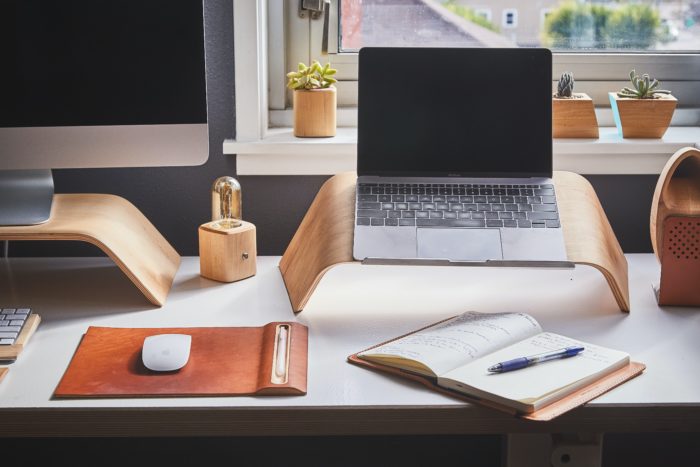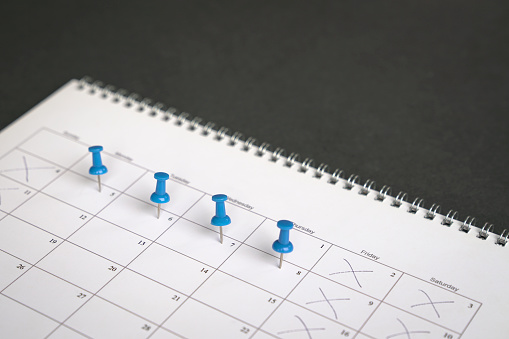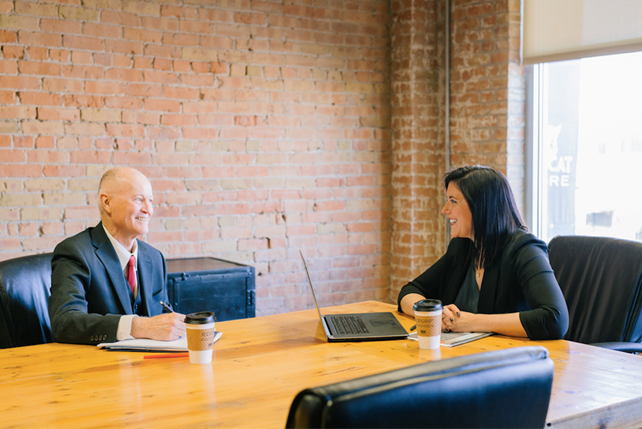Procrastination at work: 6 ways to boost your productivity
November 8, 2019 12:05 pmIt is a problem that we all experience at work from time to time: procrastination. The pile of paperwork on our desks or the never-ending emails can be overwhelming, leading us to distractions and therefore feelings of stress or self-defeat. Let us help you to be as productive as you can and truly make the most out of your working day.
When asked to think of the most productive person you know, it is likely that a colleague or friend, who always seems to get everything done in record time, springs to mind. Someone who always seems alert, energetic, and free of stress, meeting deadlines days before they are due.
So why is it that many of us cannot achieve such efficiency even if we are so envious of it? Many of us neglect difficult, boring or long-term tasks that we might be afraid of undertaking. Or, we put off tasks to hours before the deadline as we feel that we work best under pressure. Even during days where we have very little to do, we might procrastinate as we feel like we have all the time in the world. How to solve this?
At TeamRH, a recruitment agency based in Paris, we know that efficiency is something that both workers and their employers value, and which can often be a factor that leads to promotion. So, we have thought of 6 top ways to boost your productivity in the workplace, in order for you to feel fulfilled at the end of a day’s work.
1. Start your day off right
A productive day starts with a productive morning, even before setting off for work. You will certainly not achieve this if you wake up half an hour before leaving, only to arrive flustered, overwhelmed with your work and already exhausted. It may seem obvious, but getting a good night’s sleep and having time in the morning to prepare yourself is essential if you want to have a productive day.
Some people even feel like doing some exercise or ticking off some personal goals in the morning before work makes them feel more productive. Whether it is taking the time to make a healthy breakfast, or updating a personal blog, find what makes you feel motivated and incorporate it into your morning routine.
2. Make your to-do list doable
Your to-do list is an essential part of keeping track of your tasks and making sure they get done. But a messy and vague list will do more harm than good, as your work will appear impossible to manage. Here are a few ways to make sure that your to-do list works well for you.
Firstly, write your list the day before the tasks need to be done. Before leaving the office in the evening, dedicate 5 or 10 minutes to planning the next day. This will mean that when you arrive in the morning, you will immediately have a clear idea of how your day will be structured.
Now, the writing itself. The problem that people often face when tackling their to-do list is an inability to start large, intimidating tasks, which you know will be time-consuming. It is therefore important to split these tasks into manageable sections, before incorporating them into your schedule. For example, when I am planning to write an article, I split the process into initial mind-mapping, a more in-depth research stage, planning, writing, translation, and finally proofreading. By splitting the task into 6 parts, I know exactly how I will complete it and it appears a lot less daunting.
Now you can begin to work these tasks into your schedule. Split them into short, medium and long, and vary your tasks throughout the day. Note down timeslots for your tasks and make sure you give yourself enough time to complete them; leave yourself extra time in case they take longer than you think, or in case an urgent task comes up that you will need to prioritise. A to-do list must be flexible for when things go wrong!
If you are working on a task that you know you will have to complete again, take note of how long each section takes you. You will then be able to plan your schedule more accurately next time you have to tackle it.
Setting your to-do list out into an order is also essential so that you can vary your work. Your most important tasks, which have a close deadline, should always be prioritised and worked on early on in the day. Otherwise, as long-term projects are often the most difficult and time-consuming, we recommend working on them in the morning while you are alert and motivated. Then, once this has been completed, you can work on smaller, more manageable tasks as the day goes on.
If it helps, you can set yourself one major task for the day (split into manageable chunks, of course!) and then leave the rest of the day without a strict schedule.
If you feel like you like to get something done early in the morning, then complete one small task, and then move onto a larger one.
At TeamRH, recruitment company based in Paris, we know that different people work in different ways. Therefore, your to-do list needs to be tailored to you and how you work well. Try different methods to boost your productivity.
3. Make a distraction list
It is very easy to get side-tracked when you are working on a project. You might suddenly remember that you have a bill to pay, a meeting to schedule or an email to reply to. All of these are tasks which need to be completed, but not immediately, as your focus should be maintained when completing what Cal Newport, professor of computer science at Georgetown University and author of six self-improvement books, defines as ‘deep work’. This is work that is cognitively demanding, and requires time and concentration to complete. Hence why it is incompatible with all of those little tasks distracting you in the process!
Instead of completing these small tasks now, jot them down on a ‘distraction list’ and return to the task at hand. These small tasks, which Cal Newport defines as ‘shallow work’ as they require little brainpower to be completed, can be dealt with when you have a 5 or 10 minute slot free later on in the day.
4. Switch your phone off
Most of us are guilty of checking our phones during working hours, even if we are not expecting anything important. Once in a while is acceptable, but it is easy to get into the habit of checking it every 5 minutes! This is simply a matter of self-discipline, habit and control. Switching your phone off until lunch is a great way to make sure you stay focused. If you need your mobile for work, simply keeping it out of sight, for example, behind your monitor, has been proven to boost efficiency.
Alternatively, it may be worth considering having separate work and personal phones to ensure that you keep your professional and personal life separate, or using a free app such as Flipd, Moment or your iPhone’s iOS settings, to limit your phone use. In this way you can limit your screen time for the apps that you know distract you, while still allowing yourself to use your phone for professional reasons.
This will stop you from multitasking and save you precious minutes (which will turn to hours) that you can use to focus on your work.
5. Maintain a good work/life balance
Leading on from this, many productive people claim to keep their work and personal life entirely separate. The 8-hour window of time at the office is the one in which they fully dedicate themselves to their work, meaning that they are more likely to be motivated to get it all done within that time. The thought of an evening or a weekend of total relaxation allows you to be efficient throughout the working day.
Similarly, make sure that your work breaks are truly breaks. Checking your emails in your lunch break will only make you feel like your work is never-ending and you will not feel refreshed when starting again.
If you work remotely, it is worth designating a certain room in your house to work only. This is a room that you can organise and decorate in a way that will allow you to be efficient. Avoid anything that may distract you in here, such as a TV. Again, the same rules apply for taking breaks here. Spend your breaks in another room, and be strict with timings, just as you would be at the office.
6. Find shortcuts
Last but not least, a point which may seem insignificant, but which in fact, proves to be very beneficial. Finding ways to tackle quick tasks in even less time than usual will minimise the time you spend thinking about those necessary, but repetitive, everyday responsibilities.
One way in which you can boost your efficiency in this manner is by finding keyboard shortcuts, such as ‘Ctrl + t’ to open a recently closed tab. These can be looked up and learnt through everyday practice and will save you plenty of time.
You can also create email templates for messages that you send regularly. For example, if your job requires you to send confirmation emails, create a template that can be easily opened every time you send one. Save it in your drafts and quickly tweak the name and dates every time you need to send one.
So, if you want to be the person who springs to mind when someone mentions efficiency… keep these 6 productivity pointers in mind!
About TeamRH:
TeamRH is a Recruitment Company located in Paris. It is a crucial player in the legal and financial sector. We provide services for our national and international clients, aligning ourselves with their pursuit of excellence.
As a company with international clients, we welcome applications from candidates from all over the world and with international experiences. So, when sending us your CV, do not hesitate to mention the soft skills and experiences that make you stand out.
Take a look at our current positions here. Apply today!












